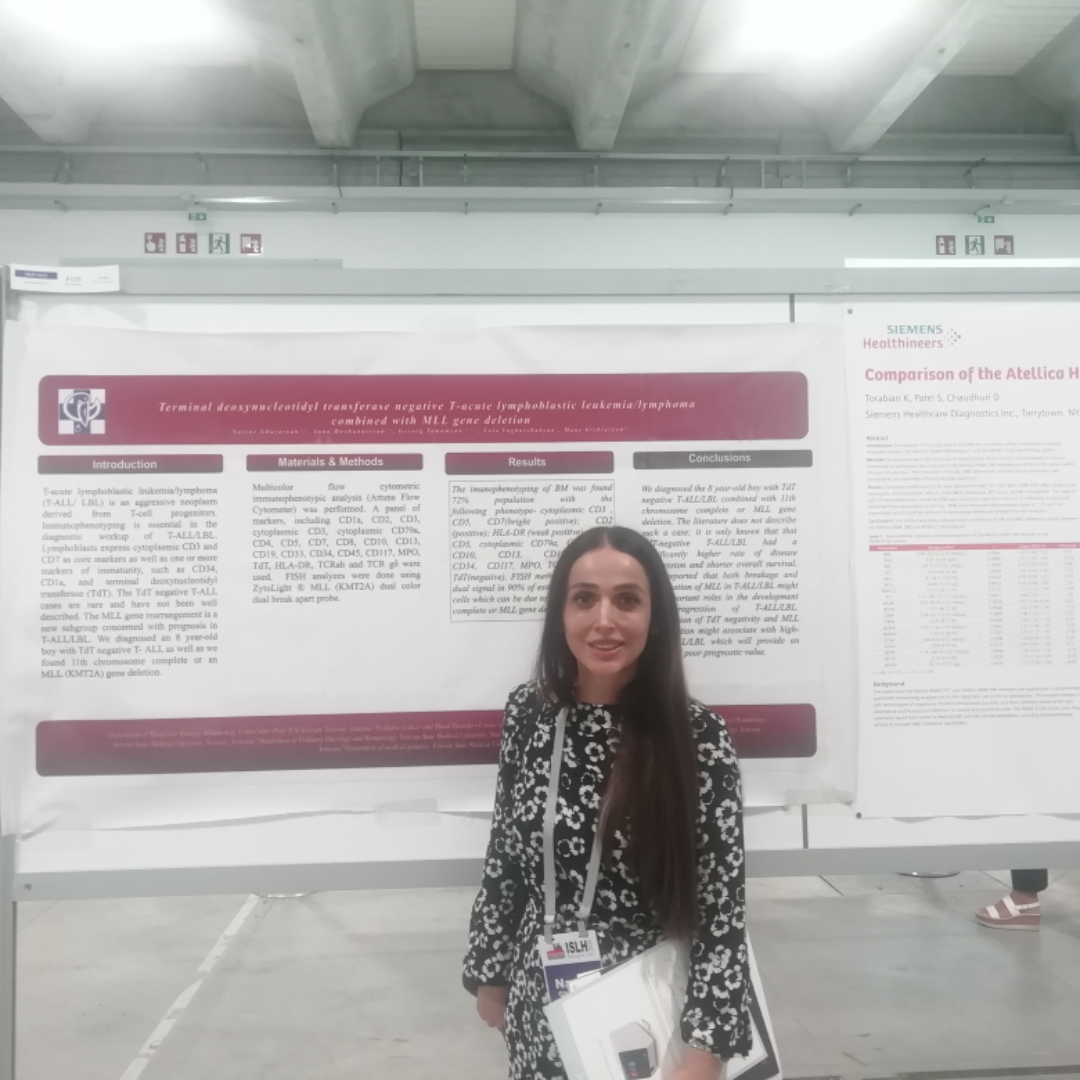
Dr. Narine Ghazaryan presented a study entitled "Terminal deoxynucleotidyl transferase negative T-acute lymphoblastic leukemia/lymphoma combined with MLL gene deletion" during ISLH meeting in Bologna, Italy, September 8-10, 2022 (Narine Ghazaryan, Anna Hovhannisyan, Gevorg Tamamyan, Lala Vagharshakyan, Mane Gizhlaryan). T-acute lymphoblastic leukemia/lymphoma (T-ALL/ LBL) is an aggressive neoplasm derived from T-cell progenitors which represents approximately 15% of all ALL/LBL cases in children. Immunophenotyping is essential in the diagnostic workup of T-ALL/LBL. Lymphoblasts express cytoplasmic CD3 and CD7 as core markers as well as one or more markers of immaturity, such as CD34, CD1a, and terminal deoxynucleotidyl transferase (TdT). The TdT is normally expressed in T cell precursors and expressed in 95% of cases of ALL/LBL by flow cytometry. The TdT negative T-ALL cases are rare and have not been well described. The MLL gene rearrangement is a new subgroup concerned with prognosis in T-ALL/LBL. We diagnosed an 8 year-old boy with TdT negative T- ALL as well as we found 11th chromosome complete or an MLL (KMT2A) gene deletion. Combination of TdT negativity and MLL gene deletion might be associated with high-risk T-ALL/LBL which will provide an additional poor prognostic value.
About IMMONC
Immune Oncology Research Institute (IMMONC) is dedicated to advancing research aimed at preventing, treating, and ultimately curing cancer while making these innovations accessible to those who need them. If you're interested in joining our team, please feel free to contact us at [email protected] or at +374-41 310-048.